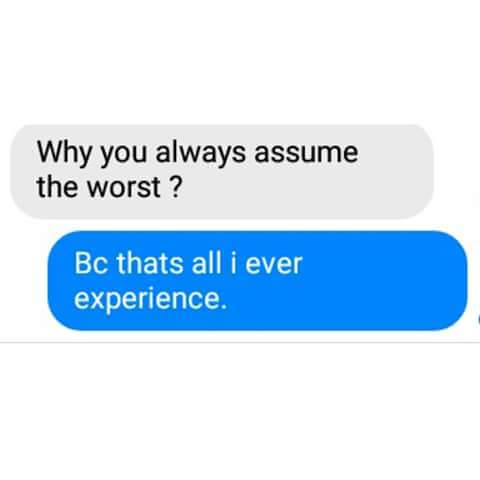When people are subject to abuse and trauma in a relationship, they tend to build walls around themselves to prevent further hurt in similar future situations. We as humans survive due to the effectiveness of our defense mechanisms. We have learned to be cautious of certain behaviors and activities because we have been hurt in the past. That’s a natural and normal reaction to being abused.
Sometimes, however, those walls become so high that the walls themselves prohibit our growth and healing. Instead of seeing the walls as appropriate cautionary reminders, we see them as inflexible guidelines by which to live the rest of our lives. No matter the circumstances, we can fall into the trap of repeating old patterns and behaviors, even if they no longer serve us because at one time they did serve us very well.
So how do we begin to trust again and truly heal from old patterns of abuse and trauma once we find a person who is worthy of a healthy relationship? These tips are in no particular order and I feel that we as survivors revisit each of these aspects over and over again as we heal and grow in our newfound positive relationships.
Time.
We need to do is to be worthy of a healthy relationship ourselves. Now, let me explain. We’re ALL deserving of healthy and stable relationships but until we’re able to begin to participate in a healthy relationship with another person, we should refrain from embarking upon them. We need to take the time to deal with our own emotional trauma, to be able to examine our own baggage of guilt and shame and to begin to forgive ourselves for our mistakes so we can start to value ourselves once again.
Change the tape in your head.
Sometimes we need to learn how to respond to people without letting our past cloud our view. It can be difficult to evaluate each relationship for what it is instead of what we fear them to be. Fear can be healthy…but it can also become crippling if we allow it to be. Think of all the good things in life you would have missed out on if you had been too afraid to try.
Readjust your radar.
We need to realize that the fear that once served us is no longer applicable in every situation. If we’re honestly trying to change our behaviors, we need to realize that other areas of our lives will be influenced by the changes we’re making. Benefitting from those changes include understanding that the signals we give off to others are changing and as a result, the caliper of people that are attracted to our lives will begin to change as well.
Stop taking everything so personally.
When we experience hurt, the trauma carries over into every other aspect of our lives. Our perceptions are clouded by our experiences. In order to truly begin to heal, we need to realize that just as our reality is tainted by our experiences, so the reality of others is tainted by their experiences as well. Not everything someone else does or says is always about us…and truthfully, even when it is about us, it’s not our issue to overcome.
Take responsibility for yourself and your actions.
We are only responsible for what we say and how we say it. We aren’t responsible for what another person hears or how they relate to the information we pass along to them. In turn, we are responsible for accepting the truth in our relationships and that includes hearing unpleasant aspects of ourselves and adapting our behavior to more appropriate behavior if those aspects are actually rooted in truth.
Give yourself a break.
In the quest to become the best person we can be after surviving trauma and abuse, we are going to make mistakes. Probably several mistakes. Own up to your mistakes when you make them. Apologize for them. Try your damnedest not to repeat them. That’s literally all we can do.
Realize that change, and the happiness that will follow, is possible.
The only sure thing about human nature is that we are capable of change if we want it bad enough. We are all deserving of safety, peace and happiness. Attaining this state takes hard work. It means analyzing past behavior and making adjustments when necessary. It means doing the self examination to work through difficult, unpleasant and sometimes even painful emotions. It means knowing that their IS light at the end of the tunnel and knowing that you’re worthy of happiness.
These are just my personal thoughts and feelings about how to proceed in healthy relationships after experiencing abusive relationships. These words are what I’ve found to be true along my own personal journey.
What tips on beginning healthy relationships after traumatic experiences would you add to this list and why would you add them? I’d REALLY like input from both Dominants and submissives on this post because as much as we discuss all the ways that Dominants help their submissives heal, we’d be remiss to assume that submissives don’t help their Dominants heal as well. If this topic applies to you…and i think it applies to most…i’d love to hear your opinions and personal experiences on the subject, even if you rarely ever comment. There’s no right or wrong in healing, after all…
~Beautifully Broken~


